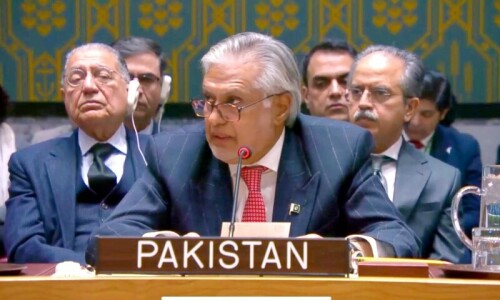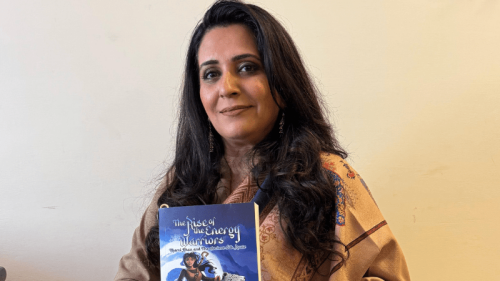For the first time, nine research papers by Pakistani students have been selected for presentation at the American Society of Microbiology (ASM) Conference.
A total of 11 abstracts were submitted by M Phil students at Dow University of Health Sciences (DUHS) for the 114th international conference scheduled to be held in Boston later this month.
Leading author for the research papers and Head of Molecular Pathology at DUHS Dr Saeed Khan says the study of infectious diseases in Pakistan is critical, “because no one is safe till everyone is safe.”
The areas of research include diseases prevalent in Pakistan such as tuberculosis, HIV and Aids, Hepatitis B, C and D, and auto-immune diseases among other viral and bacterial infections.
Khan’s team comprises Asif Iqbal, Noorulaine, Nazish Haider, Maria Zahid, Zeba Zehravi, Fatin Zehra, Sehrish Mohsin, Noorul Huda, Ayaz Ahmed and Kanwal Niazi.
Khan, who will be the presenting author for his paper ‘Prevalence and drug resistance pattern of TB in different areas of Sindh’ says, “Due to the population not taking proper medication there is a change in bacteria making TB not treatable by drugs that currently available.”
The work is extensive and strenuous especially when researching and studying the pathology for HIV in Pakistan, Khan says. “The stigma attached to HIV and then the changes in prevalence among injecting drug users and sex workers is a challenge to track and document but it is important work which must be properly researched.”
One of the students and presenting author for research paper ‘Genetic diversity and geographic linkages of HIV using bioinformatics tools’ Maria Zahid says she didn’t expect such a positive response to their submissions.
“We had always planned to submit our (research) papers but was pleasantly surprised when almost all were accepted,” she told Dawn.com.
Zahid began working on her research paper in January last year and is analysing the circulation of the virus and which types and subtypes are common in Pakistan. “HIV has two types and 11 sub-types. We can only work on developing vaccines once we know which types and subtypes we are dealing with. Presently in Pakistan we have subtype A of the virus whereas worldwide subtype B is prevalent.”
The research team, which has been unconventionally awarded with grants to support their travel expenses is scheduled to depart for the United States on May 15 depending on the acceptance of their visa.














































